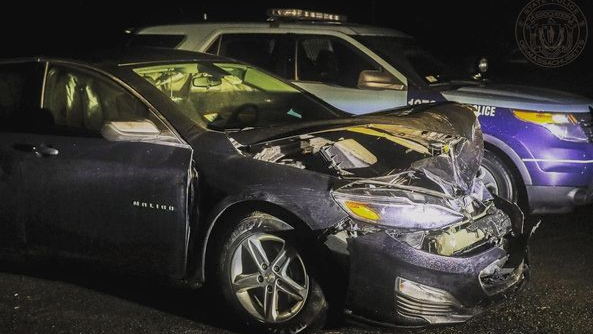
A Boston federal appeals court ruled Tuesday against vacating the death sentence and murder convictions of a man who died in prison while appealing his death sentence.
Gary Lee Sampson confessed to killing three men during a weeklong crime spree in 2001. He pleaded guilty in federal court to two of the murders, in which he carjacked his victims, took them into the woods and stabbed them. Sampson was convicted separately in the third killing in state court in New Hampshire.
Sampson never challenged those convictions, just the death penalty, making them final and no longer open to appeal, according to a legal brief filed by U.S. District Attorney for Massachusetts Rachael Rollins’ office last month.
Sign up for our Breaking newsletter to get the most urgent news stories in your inbox.
Get Boston local news, weather forecasts, lifestyle and entertainment stories to your inbox. Sign up for NBC Boston’s newsletters.
The U.S. First Circuit Court of Appeals agreed, saying the death penalty appeal is now “moot.”
“We decline to exercise our equitable discretion to vacate Sampson’s death sentence. His convictions, life sentence, and death sentence are not vacated and remain intact,” the court ruled Tuesday.
Rollins praised the decision.
“Today we say the names of Philip McCloskey, Jonathan Rizzo and Robert Whitney. Three lives that were stolen. Their memories will live on. This decision by the First Circuit definitively ends the legal process and Mr. Sampson remains a convicted serial murderer, sentenced to death,” Rollins said in a written statement.
Rollins’ arguments echoed, in part, sentiments from one of Sampson’s lawyers last month. Attorney Madeline Cohen, of Boulder, Colorado, said her late client’s appeal didn’t seek to challenge the legality of his conviction, only the decision to sentence him to death.
Cohen said Sampson never denied responsibility for the killings, pled guilty in 2003 and stood by the guilty plea.
Mary Rizzo, mother of victim Jonathan Rizzo, a 19-year-old college student from Kingston, Massachusetts, had strongly argued in favor of maintaining the convictions against Sampson.
“Sampson’s blatant and bragging confession of his detailed murder of Jonathan will forever haunt me. He pleaded guilty over and over, never once asking for forgiveness,” she wrote in a filing with the court last month. “He was an evil man. To think that his conviction might be wiped away is an insult to our family.”
In July 2001, Sampson killed McCloskey and Rizzo, who had separately given him rides while he hitchhiked in Massachusetts. He then took Rizzo’s stolen car, broke into a home in New Hampshire, and strangled Whitney, age 59.
Sampson was first sentenced to death in 2003, but a judge granted him a new sentencing trial after finding that a juror at his first trial lied about her background.
A new jury again sentenced Sampson to death for Rizzo’s killing in 2017, but was unable to reach a unanimous decision on his penalty for killing McCloskey, a 69-year-old retired pipefitter from Taunton.
Sampson was instead sentenced to life in prison for McCloskey’s slaying. He also received a separate life sentence after pleading guilty to strangling Whitney. His lawyers argued he was brain damaged and mentally ill during the killing spree.
Sampson — a 62-year-old Abington, Massachusetts, native — died at the medical center for federal prisoners in Springfield, Missouri, after years of end-stage liver disease.



